Huntington, Samuel P. The Soldier and the State: The Theory and Politics of Civil-Military Relations. Cambridge: Harvard University Press, 1957.
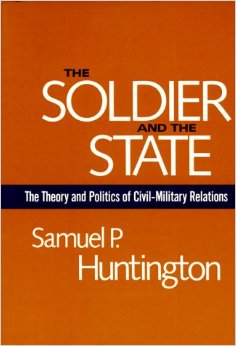

Huntington, Samuel P. The Soldier and the State: The Theory and Politics of Civil-Military Relations. Cambridge: Harvard University Press, 1957.
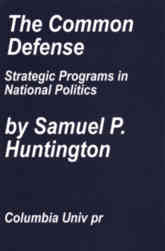
Huntington, Samuel P. The Common Defense: Strategic Programs in National Politics. New York, Columbia University Press, 1961.
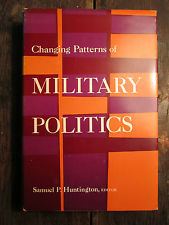
Ed. Huntington, Samuel. Changing Patterns of Military Politics in National Politics. New York: Free Press, 1962.
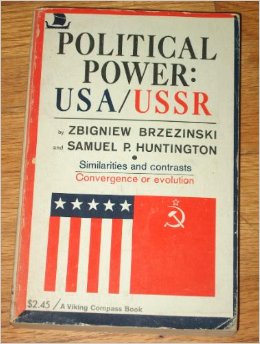
Brzezinsky, Zbigniew and Samuel P. Huntington. Political Power: USA/USSR. New York: Viking Press, 1964.
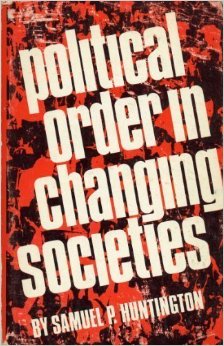
Huntington, Samuel P. Political Order in Changing Societies. New Haven: Yale University Press, 1968.
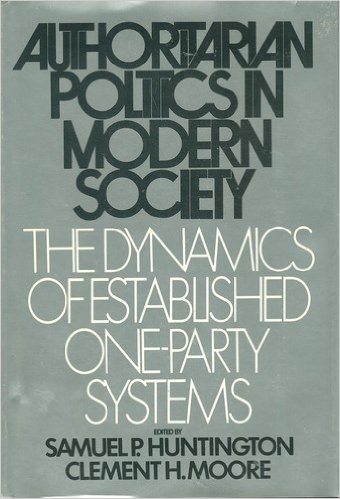
Huntington, Samuel P. and Clement Moore. Authoritarian Politics in Modern Society: The Dynamics of Established One-Party Systems. New York: Basic Books, 1970.
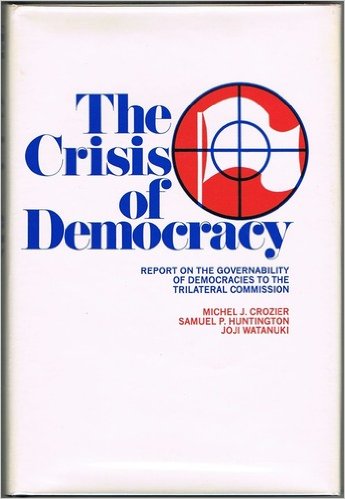
Crozier, Michael and Samuel Huntington and Joji Watanuki. The Crisis of Democracy: Report on the Governability of Democracies to the Trilateral Commission. New York: New York University Press, 1975.
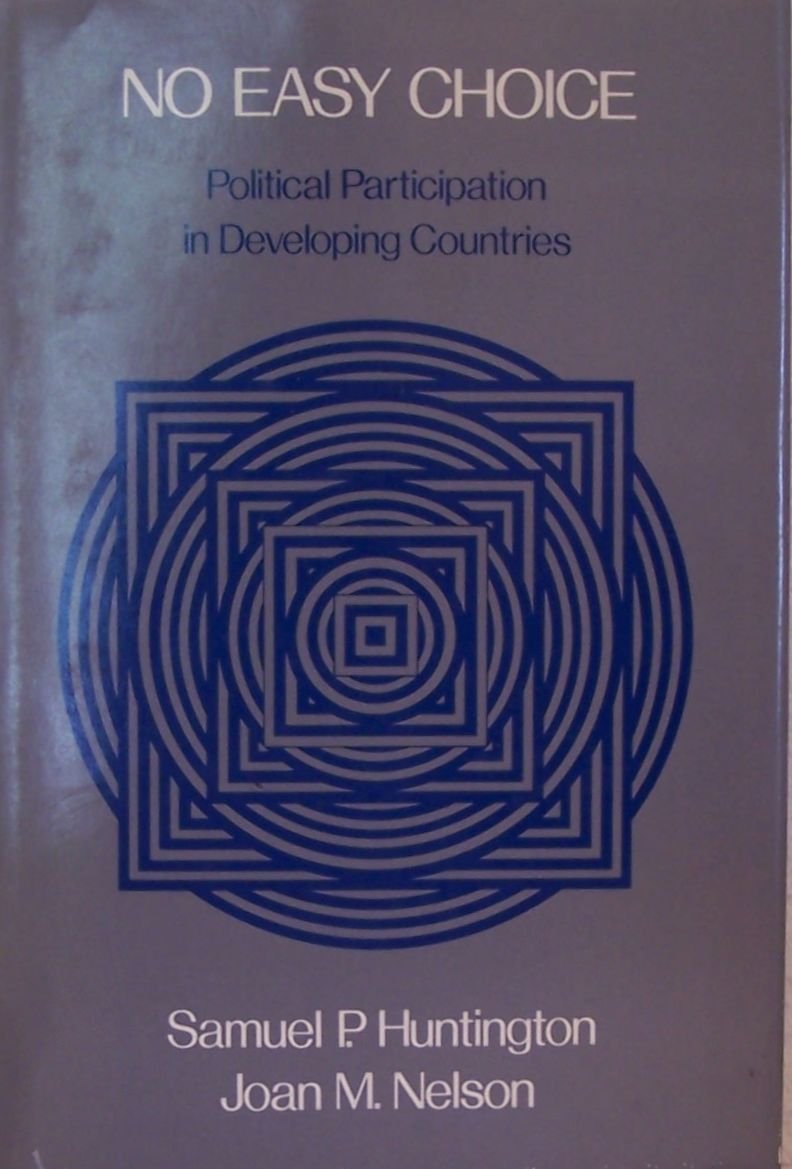
Huntington, Samuel P and Joan Nelson. No Easy Choice, Political Participation in Developing Countries. Cambridge: Harvard University Press, 1976.
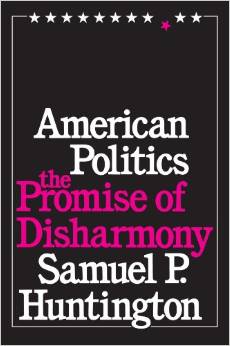
Huntington, Samuel. American Politics: The Promise of Disharmony. Cambridge: Harvard University Press, 1981.
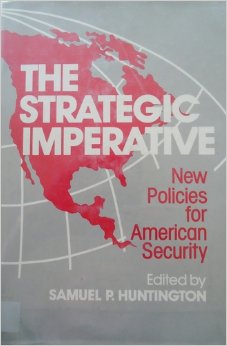
Ed. Huntington, Samuel P. The Strategic Imperative: New Policies for American Security. Cambridge: Harvard University Press, 1982.
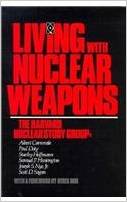
Carnesale, Albert, Paul Doty, Stanley Hoffman, Samuel P. Huntington, Joseph D. Nye Jr., Scott Sagan, Derek Bok. Living with Nuclear Weapons. Cambridge: Harvard University Press, 1983.
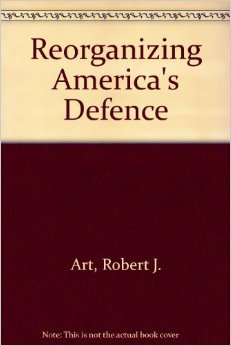
Art, Robert J., Vincent Davis, and Samuel Huntington. Reorganizing America’s Defense: Leadership in War and Peace. Washington, DC: Pergamon-Brassey, 1985.
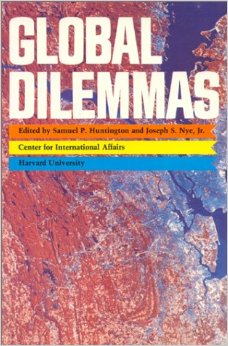
Eds. Huntington, Samuel and Joseph Nye. Global Dilemmas. Cambridge: Center for International Affairs at Harvard University, 1985.
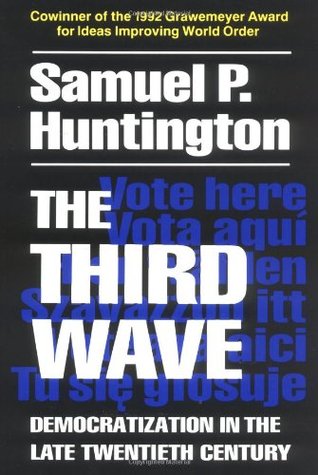
Huntington, Samuel P. The Third Wave: Democratization in the Late 20th Century. Norman: University of Oklahoma Press, 1993.
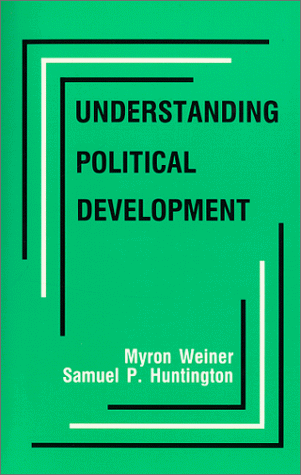
Weiner, Myron and Samuel P. Huntington. Understanding Political Development. Boston: Waveland Press, 1994.
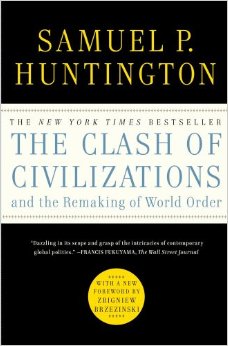
Huntington, Samuel. The Clash of Civilizations: and the Remaking of World Order. New York: Simon and Schuster, 1996.
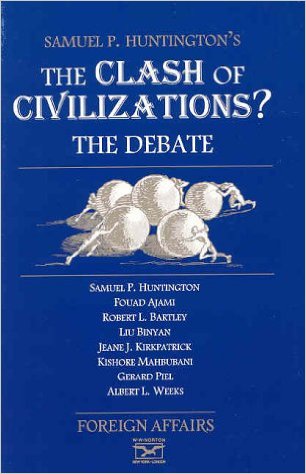
Ed. Huntington, Samuel P. The Clash of Civilizations: The Debate. New York: Foreign Affairs, 1996.
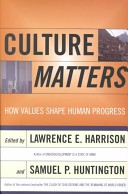
Ed. Harrison, Lawrence and Samuel P. Huntington. Culture Matters: How Values Shape Human Progress. New York: Basic Books, 2000.
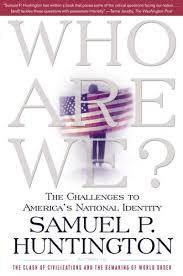
Huntington, Samuel P. Who Are We?: The Challenges to America’s National Identity. New York: Simon and Schuster, 2005.